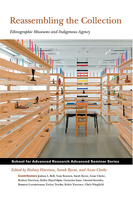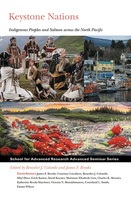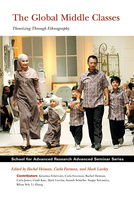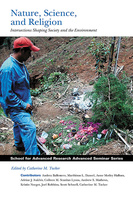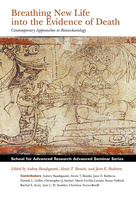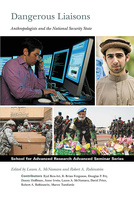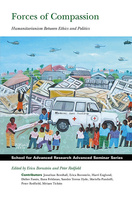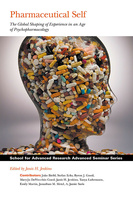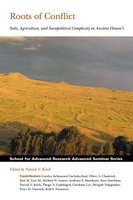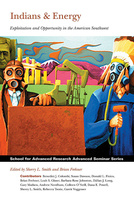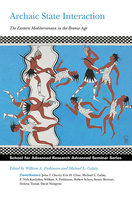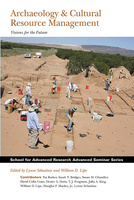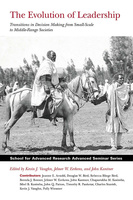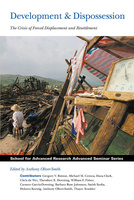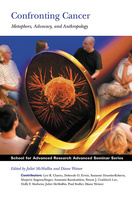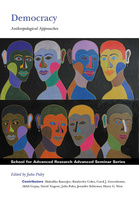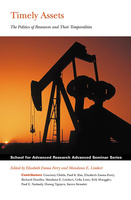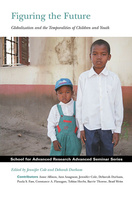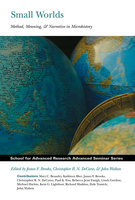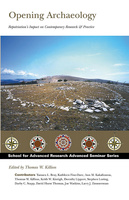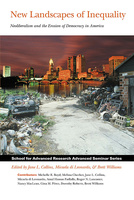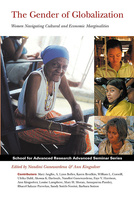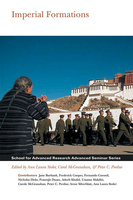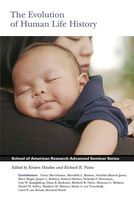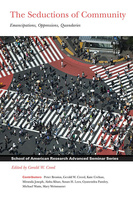Reassembling the Collection
Ethnographic Museums and Indigenous Agency
Reassembling the Collection presents innovative approaches to the study of historical and contemporary engagements between museums and the various individuals and communities who were (and are) involved in their production and consumption.
Big Histories, Human Lives
Tackling Problems of Scale in Archaeology
The contributors consider something archaeologists seldom think about: the intersection of micro-scale human experience with large-scale and long-term histories.
Keystone Nations
Indigenous Peoples and Salmon across the North Pacific
The histories and futures of Indigenous peoples and salmon are inextricably bound across the vast ocean expanse and rugged coastlines of the North Pacific. Keystone Nations addresses this enmeshment and the marriage of the biological and social sciences that have led to the research discussed in this book.
The Global Middle Classes
Theorizing through Ethnography
Surging middle-class aspirations and anxieties throughout the world have recently compelled anthropologists to pay serious attention to middle classes and middle-class spaces, sentiments, lifestyles, labors, and civic engagements.
Nature, Science, and Religion
Intersections Shaping Society and the Environment
This book is about the complicated and provocative ways nature, science, and religion intersect in real settings where people attempt to live in harmony with the physical environment. The contributors explore how scientific knowledge and spiritual beliefs are engaged to shape natural resource management, environmental activism, and political processes.
The Shape of Script
How and Why Writing Systems Change
This book builds on earlier projects about the origins and extinctions of script traditions throughout the world in an effort to address the fundamental questions of how and why writing systems change. The contributors--who study ancient scripts from Arabic to Roman, from Bronze Age China to Middle Kingdom Egypt--utilize an approach that views writing less as a technology than as a mode of communication, one that is socially learned and culturally transmitted.
Breathing New Life into the Evidence of Death
Contemporary Approaches to Bioarchaeology
Taking cues from current theoretical perspectives and capitalizing on the strengths of new and sophisticated methods of analysis, Breathing New Life into the Evidence of Death showcases the vibrancy of bioarchaeological research and its potential for bringing "new life" to the field of mortuary archaeology and the study of human remains.
Dangerous Liaisons
Anthropologists and the National Security State
Dangerous Liaisons is a book about intersections. It is a product of two year's worth of discussion among a group of ethnographers from four different countries studying war, violence, the military, and the state.
Enduring Conquests
Rethinking the Archaeology of Resistance to Spanish Colonialism in the Americas
Enduring Conquests presents new interpretations of Native American experiences under Spanish colonialism and challenges the reader to reexamine long-standing assumptions about the Spanish conquests of the Americas.
Forces of Compassion
Humanitarianism between Ethics and Politics
Suffering and charity have a long history. Both human sorrows and attempted remedies were familiar features of life in earlier eras and religious traditions, however, during the final decades of the twentieth century, natural disasters and civilian casualties of war transformed into "humanitarian crises." In these recurring dramas presented by international media, an extensive network of interstate entities and nongovernmental organizations (NGOs) supplies assistance to victims.
Pharmaceutical Self
The Global Shaping of Experience in an Age of Psychopharmacology
This book addresses a critical contemporary issue--the worldwide proliferation of pharmaceutical use. The contributors explore questions such as: How are culturally constituted selves transformed by regular ingestion of pharmaceutical drugs? Does "being human" increasingly come to mean not only oriented to drugs but also created and regulated by them? From the standpoint of cultural phenomenology, does this reshape human "being"?
Roots of Conflict
Soils, Agriculture, and Sociopolitical Complexity in Ancient Hawai'i
Roots of Conflict presents the efforts of a team of social and natural scientists to understand the complex, systemic linkages between land, climate, crops, human populations, and their cultural structures.
Indians and Energy
Exploitation and Opportunity in the American Southwest
The authors consider the complex relationship between development and Indian communities in the Southwest in order to reveal how an understanding of patterns in the past can guide policies and decisions in the future.
Archaic State Interaction
The Eastern Mediterranean in the Bronze Age
By using a specific case study, the contributors to this book aim to help establish a common theoretical ground for investigating how humans and the societies they built interacted over time.
Archaeology and Cultural Resource Management
Visions for the Future
By most estimates, as much as 90 percent of the archaeology done in the United States today is carried out in the field of cultural resource management. The contributors hope that this book will serve as an impetus in American archaeology for dialogue and debate on how to make CRM projects and programs yield both better archaeology and better public policy.
The Evolution of Leadership
Transitions in Decision Making from Small-Scale to Middle-Range Societies
This book brings together the perspectives of cultural anthropologists and archaeologists to explore why and how leadership emerges and variously becomes institutionalized among disparate human societies.
Global Health in Times of Violence
Over 24 million people have died in these conflicts, and millions more suffered illness and injury. In this volume, leading scholars and practitioners examine the impact of structural, military, and communal violence on health, psychosocial well-being, and health care delivery. By investigating the fields of violence that define our modern world, the authors are able to provide alternative global health paradigms that can be used to develop more effective policies and programs.
Development and Dispossession
The Crisis of Forced Displacement and Resettlement
Resettlement has been so poorly planned, financed, implemented, and administered that these projects end up being "development disasters." Because there can be no return to land submerged under a dam-created lake or to a neighborhood buried under a stadium or throughway, the solutions devised to meet the needs of people displaced by development must be durable. The contributors to this volume analyze the failures of existing resettlement policies and propose just such durable solutions.
Confronting Cancer
Metaphors, Advocacy, and Anthropology
In this book, anthropologists examine the lived experiences of individuals confronting cancer and reveal the social context in which prevention and treatment may succeed or fail.
Democracy
Anthropological Approaches
While previous scholars of democracy have proposed one definitive model after another, the authors in this work suggest that democracy is by nature an open ended set of questions about the workings of power--questions best engaged through the dialogical processes of fieldwork and ethnographic writing.
Timely Assets
The Politics of Resources and Their Temporalities
Oil is running out. What's more, its final depletion, once relegated to a misty future, now seems imminent. In all the more or less apocalyptic discussions of oil and similar depleted resources, nature, labor, and time converge. This volume focuses on how resources, resource-making, and resource-claiming are entangled with experiences of time.
Figuring the Future
Globalization and the Temporalities of Children and Youth
Child laborers in South Asia, child soldiers in Sierra Leone and Uganda, Chinese youth playing computer games to earn virtual gold, youth involved in sex trafficking in the former Soviet republics and Thailand: these are just some of the young people featured in the news of late. To address how and why youth and children have come to seem so important to globalization, the contributors to this book look at the both the spatial relations and the temporal dimensions of globalization in places as far apart as Oakland, California, and Tamatave, Madagascar, in situations as disparate as the idealization of childhood innocence and the brutal lives of street children.
Memory Work
Archaeologies of Material Practices
Memory making is a social practice that links people and things together across time and space and ultimately has material consequences. The intersection of matter and social practice becomes archaeologically visible through the deposits created during social activities. The contributors to this volume share a common goal to map out the different ways in which to study social memories in past societies programmatically and tangibly.
Small Worlds
Method, Meaning, and Narrative in Microhistory
Growing unease with grand theories of modernization and global integration brought twelve scholars from four disciplines to the School for Advanced Research for an experiment with the research genre known as microhistory. These authors now call for a return to narrative, detailed analysis on a small scale, and the search for unforeseen meanings embedded in cases.
Opening Archaeology
Repatriation's Impact on Contemporary Research and Practice
In 1989-90, Congress enacted two laws, the National Museum of the American Indian Act and the Native American Graves Protection and Repatriation Act, that required museums and other repositories of Native American human remains and cultural items to consult with, share information about, and return some items to federally recognized Indian tribes and Native Alaskan and Hawaiian communities.
New Landscapes of Inequality
Neoliberalism and the Erosion of Democracy in America
Focusing on the United States, the contributors to this volume analyze how the globalization of newly untrammeled capitalism has exacerbated preexisting inequalities, how the retreat of the benevolent state and the rise of the punitive, imperial state are related, how poorly privatized welfare institutions provide services, how neoliberal and neoconservative ideologies are melding, and how recurrent moral panics misrepresent class, race, gendered, and sexual realities on the ground.
The Gender of Globalization
Women Navigating Cultural and Economic Marginalities
As "globalization" moves rapidly from buzzword to cliché, evaluating the claims of neoliberal capitalism to empower and enrich remains urgently important. The authors in this volume employ feminist, ethnographic methods to examine what free trade and export processing zones, economic liberalization, and currency reform mean to women in Argentina, Sri Lanka, Mexico, Ghana, the United States, India, Jamaica, and many other places.
Imperial Formations
The contributors to this volume critique and abandon the limiting assumption that the European colonialism of the late nineteenth and early twentieth centuries can be taken as the representative form of imperialism. Recasting the study of imperial governance, forms of sovereignty, and the imperial state, the authors pay close attention to non-European empires and the active trade in ideas, practices, and technologies among empires, as well as between metropolitan regions and far-flung colonies.
The Evolution of Human Life History
Human beings may share 98 percent of their genetic makeup with their nonhuman primate cousins, but they have distinctive life histories. When and why did these uniquely human patterns evolve? To answer that question, this volume brings together specialists in hunter-gatherer behavioral ecology and demography, human growth, development, and nutrition, paleodemography, human paleontology, primatology, and the genomics of aging.
The Seductions of Community
Emancipations, Oppressions, Quandaries
The concept of "community" is ubiquitous in the way we talk and think about life in the twenty-first century. Political and economic projects from rain forest conservation to urban empowerment zones focus on "the community" as the appropriate vehicle and target of change.

